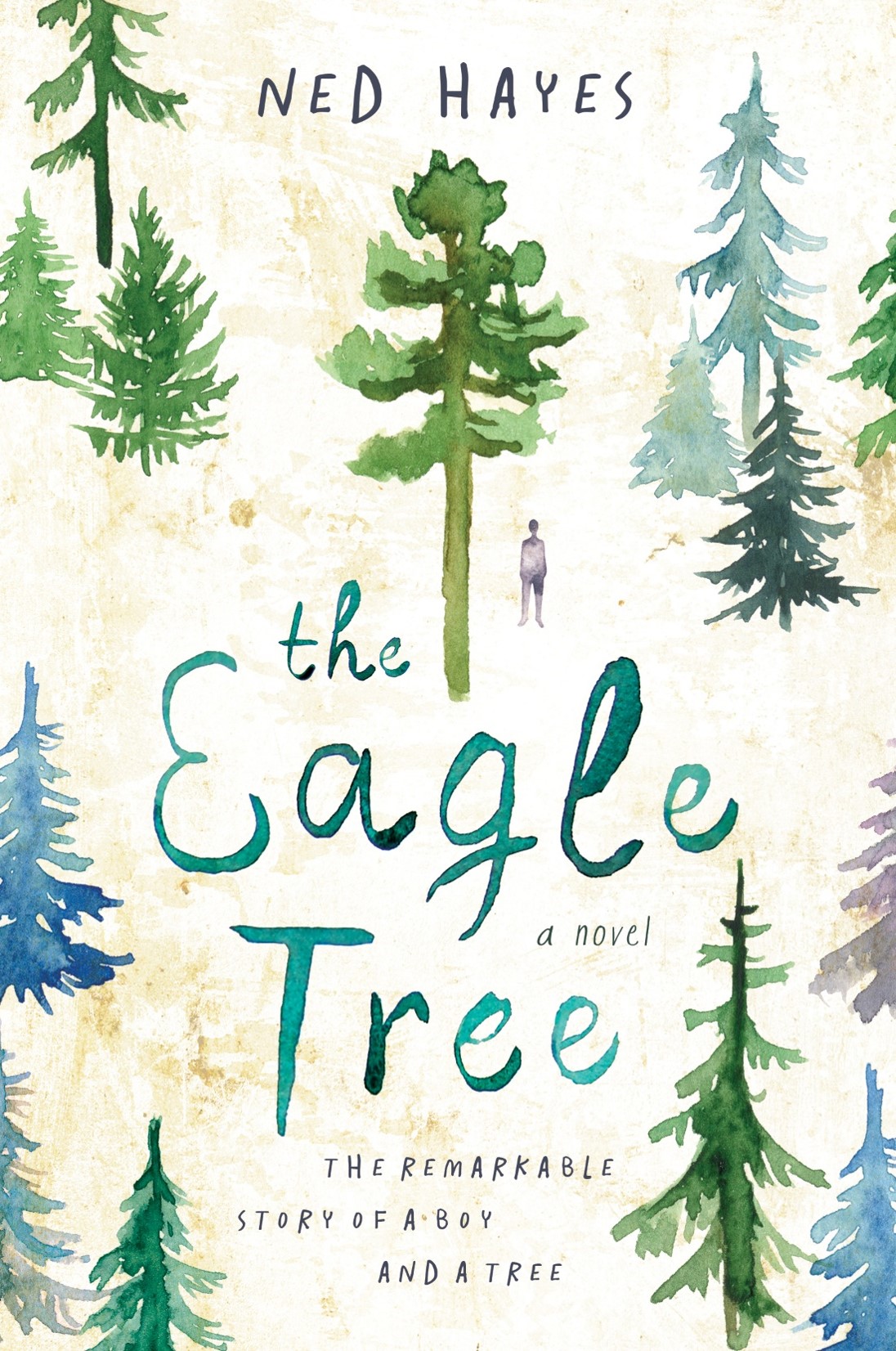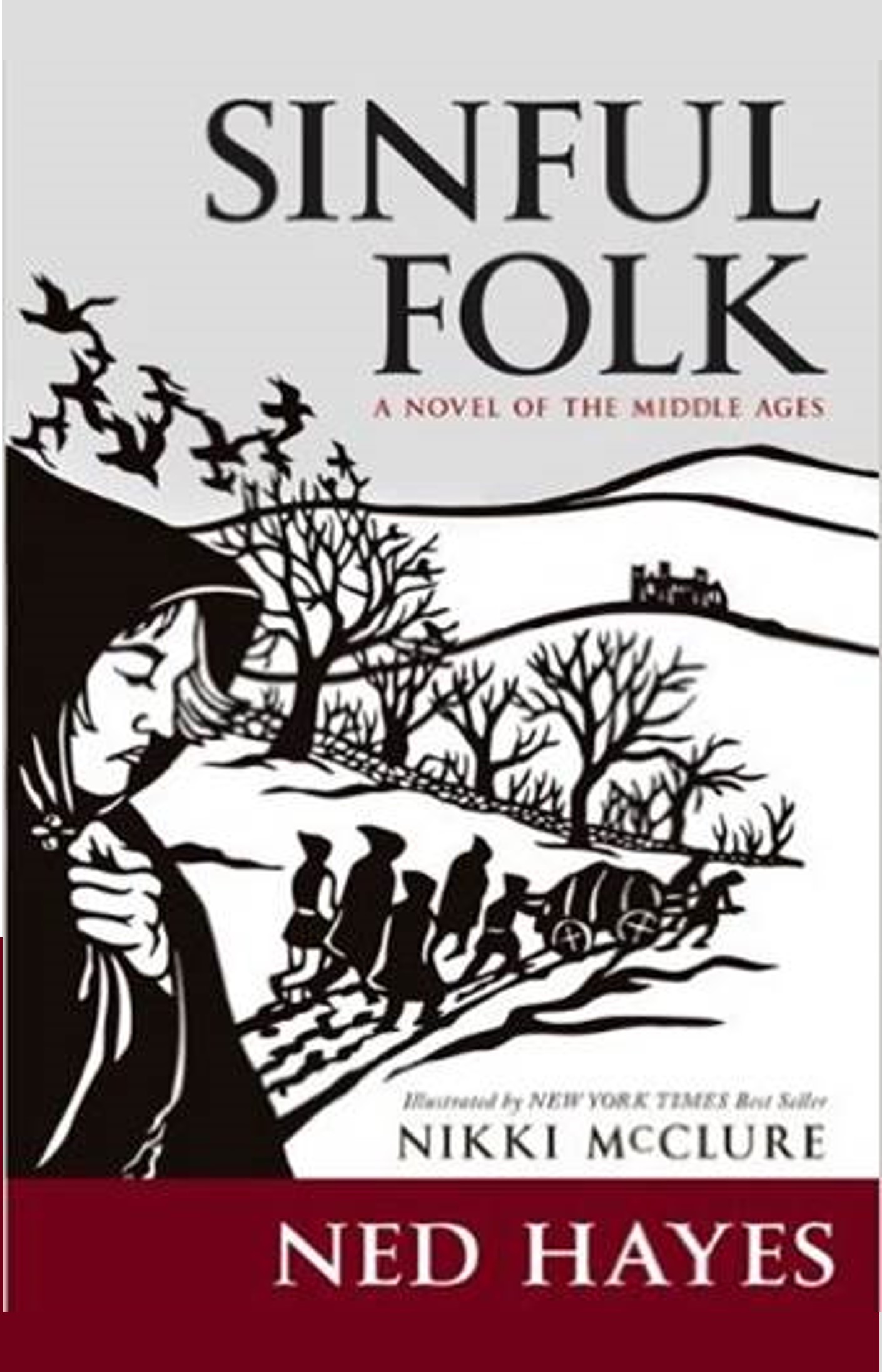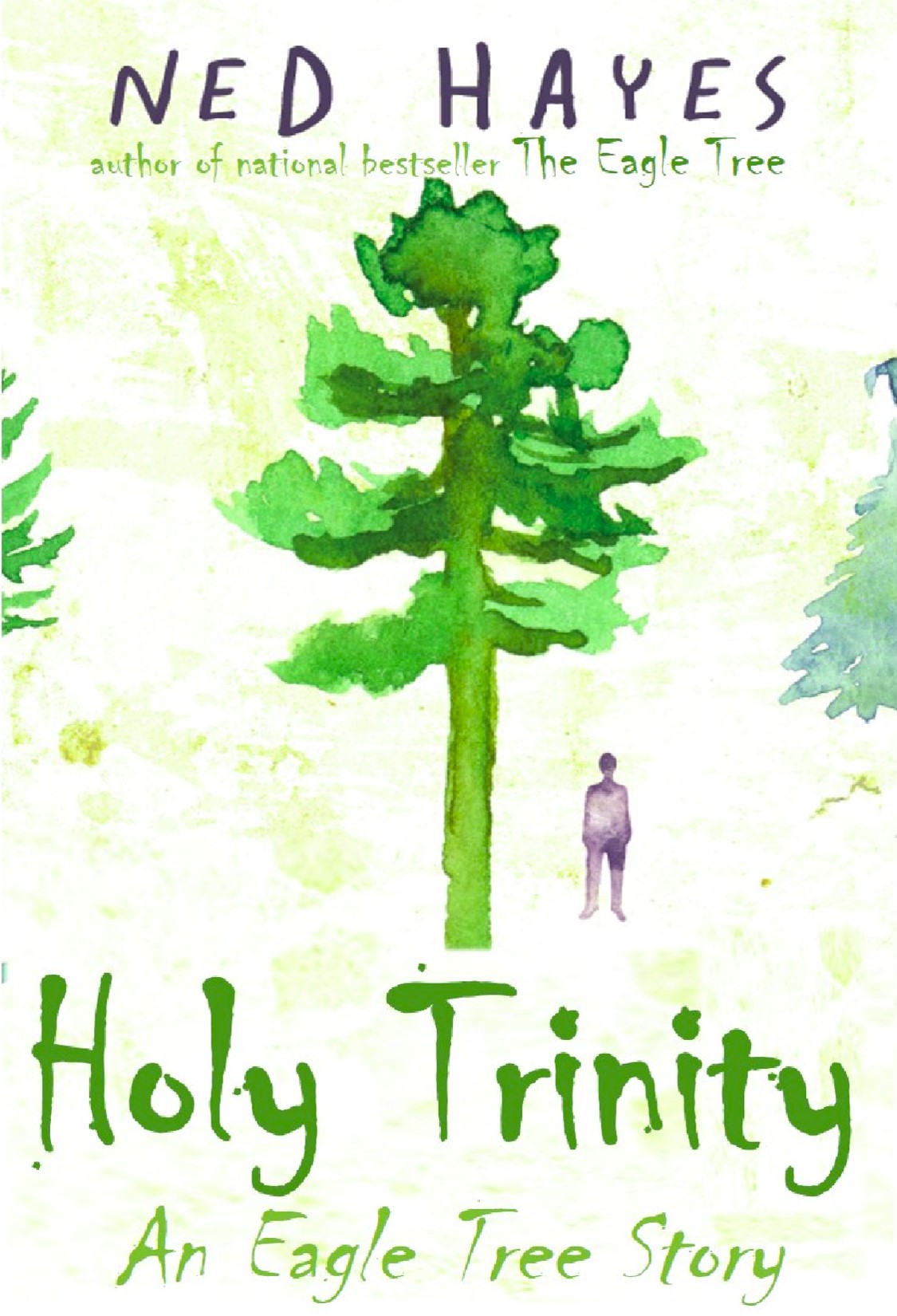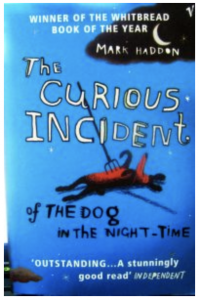 The Curious Incident of the Dog in the Night Time by Mark Haddon is the first novel I know of that told the story entirely from the point of view of a person with Autism. There have been other books that dabbled in these waters, but Curious Incident is the first novel that took the full plunge into Autism, and I would argue because it was the first it has mixed success. Because I write books to lift people from darkness and because I believe story has redemptive power, I also found the unrelenting negative reactions to Christopher’s behavior and activities to be different in effect and goals than my own writing.
The Curious Incident of the Dog in the Night Time by Mark Haddon is the first novel I know of that told the story entirely from the point of view of a person with Autism. There have been other books that dabbled in these waters, but Curious Incident is the first novel that took the full plunge into Autism, and I would argue because it was the first it has mixed success. Because I write books to lift people from darkness and because I believe story has redemptive power, I also found the unrelenting negative reactions to Christopher’s behavior and activities to be different in effect and goals than my own writing.
The novel is written so that Christopher’s point of view is pure in his disconnection from the people around him, and honest in his description of his own behavior. Yet how this behavior plays out – the way that he bounces off other people in a nearly brutal manner – was distressing and I didn’t find it particularly meaningful. It is entertaining, but in much the same way that the movie Trainspotting is entertaining – it’s like watching a car accident for the human carnage, instead of rushing to help the players.
There are many scenes and moments in the story that can be used to illuminate this point, but I’ll just choose one that happens early on in the novel to describe what I mean. When the titular dog dies – as the inciting incident of the novel – Christopher goes to the corpse and his behavior with other people in those moments end up getting him arrested. Here’s the beginning of that scene:
She was shouting “What in fuck’s name have you done to my dog?” I do not like people shouting at me. It makes me scared that they are going to hit me or touch me and I do not know what is going to happen…. I put the dog down on the lawn and moved back 2 meters…. She started screaming again. I put my hands over my ears and closed my eyes and rolled forward till I was hunched up with my forehead pressed onto the grass. The grass was wet and cold. It was nice. (Haddon 4).
Haddon does several things here that are genuine to the situation, the characters, and that show him to be a careful craftsman. First, he shows that by the time Christopher clues into the presence of other people, they are already upset. This is not atypical for even high-functioning people on the spectrum. Second, Haddon gets us firmly inside Christopher’s head and demonstrates how he is feeling (in order, shortly, to justify what comes next). Then, Haddon takes us to behavior that is not neuro-typical, but is a sensation from an inanimate object that Christopher finds soothing. So far, so good.
What happens next adds another player to the mix of activity. One thing I like a lot about Haddon’s work here is that Christopher basically drifts out of the situation entirely, so other people arrive and take action without him even seeming to notice. This happens throughout the novel, and I think it’s fair and exact to the experience of many Aspies – who are absorbed in their own worlds, and are not paying attention to other people as much as neuro-typical people might be paying attention. So another player enters the scene…
I lifted my head off the grass. The policeman squatted down beside me and said “Would you like to tell me what’s going on here, young man?”…. He was asking too many questions and he was asking them too quickly. They were stacking up in my head like loaves in the factory where Uncle Terry works…. The policeman said, “I am going to ask you once again…” I rolled back onto the lawn and pressed my forehead to the grounda gain and made the noise that Father calls groaning. The policeman took hold of my arm and lifted me onto my feet. I didn’t like him touching me like this. And this is when I hit him. (Haddon 6-8)
Again, Haddon does a fine job of demonstrating the disconnection between the policeman’s behavior and Christopher’s reactions. Christopher also has time to describe his own inner sensations (in fact, this description of his inner life goes on rather longer than I’ve allowed for in the paragraph excerpt above). Finally, the policeman does not get what he thinks he needs from Christopher, so he physically interacts with him, leading to disastrous results.
Yet the conclusion of this scene leads me to precisely what I found distressing about the book. Everyone seems to expect Christopher to act “normal,” and when he doesn’t, he immediately gets consequences like being arrested and being treated badly or being lied to, or even being abused in different ways. Although Christopher has a chance to explain himself – to himself – he does not get a chance to explain himself to the world, or to make his voice heard externally. I realize this is a central issue with Autism, but I feel that in the bounds of fiction, it would have been good to go further than just making Christopher a victim.
Curious Incident shows – in spades – the difficulty of interacting with a person on the spectrum, from a parent’s point of view. However, it does not provide enough credence to his own behavior or perspective, or the reasons Christopher might care so deeply about some things or want to figure things out. Christopher is indeed pure in his motivations, but not interesting enough to the reader to over-ride the sense of frustration or disgust that creeps through from his parent’s unspoken perspectives.
I believe Curious Incident didn’t give Christopher enough of a voice, or enough validity as a fully fleshed human being. Instead, it treated a person on the spectrum as someone with essentially the mind of a child. I want to do something different in my fiction: I want to give my main character fully fleshed motivations and desires, that may be valid in his world, even if they are opaque to the “normals” out there in the world. So it’s a fascinating attempt at a novel from the perspective of an autistic person, but one that I feel ends up being too dark, depressing, and frustrating for all concerned.
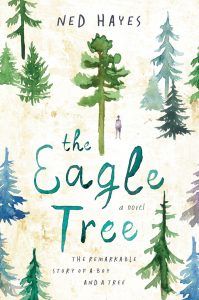 I supposed I’m a “happy” writer – I believe in happy endings, I believe that characters can be “redeemed” and I believe that all perspectives have value. So I’m pushing hard to have my main character demonstrate enough interest, and enough validity in their point of view that by the end of the novel my audience is cheering for him, instead of turning away in frustration and disgust, as happens (I think) in The Curious Incident of the Dog in the Night Time.
I supposed I’m a “happy” writer – I believe in happy endings, I believe that characters can be “redeemed” and I believe that all perspectives have value. So I’m pushing hard to have my main character demonstrate enough interest, and enough validity in their point of view that by the end of the novel my audience is cheering for him, instead of turning away in frustration and disgust, as happens (I think) in The Curious Incident of the Dog in the Night Time.
NOTE: After I finished writing this reflection on Curious Incident of the Dog in the Night-Time, I published my novel The Eagle Tree and it became a national bestseller, exploring similar themes as Haddon’s book.
Works Cited
Haddon, Mark. The Curious Incident of the Dog in the Night-time. New York: Doubleday, 2003. Print.
Robison, John Elder. Look Me in the Eye: My Life with Asperger’s. New York: Three Rivers Press, 2007.
Trainspotting. Universal Pictures, 2007. Film.

